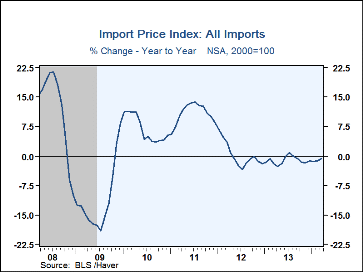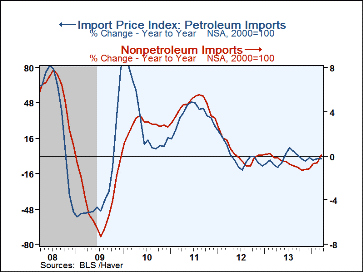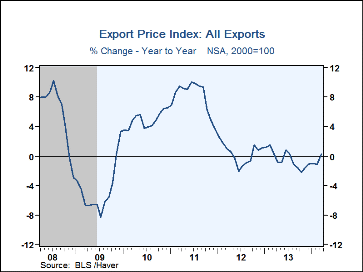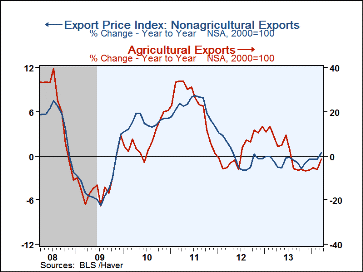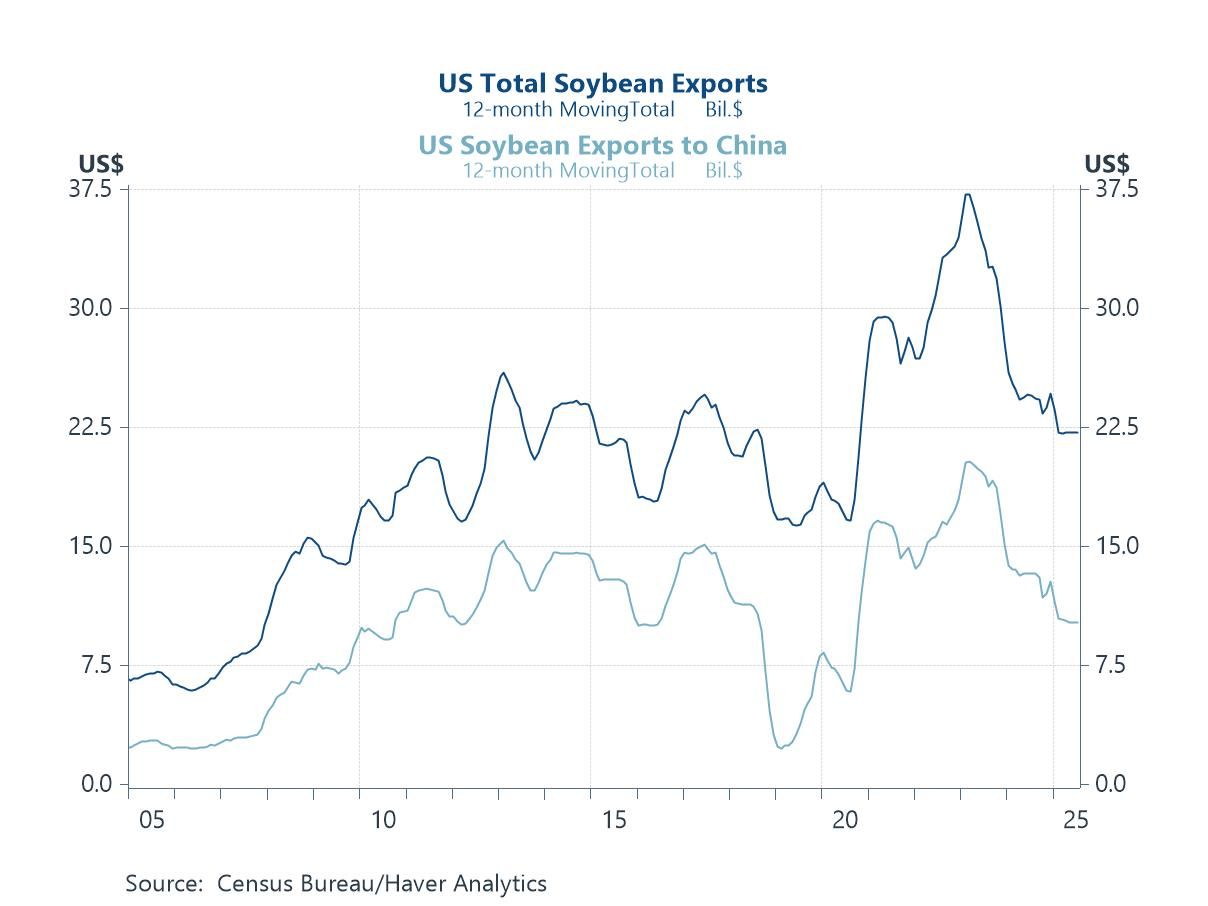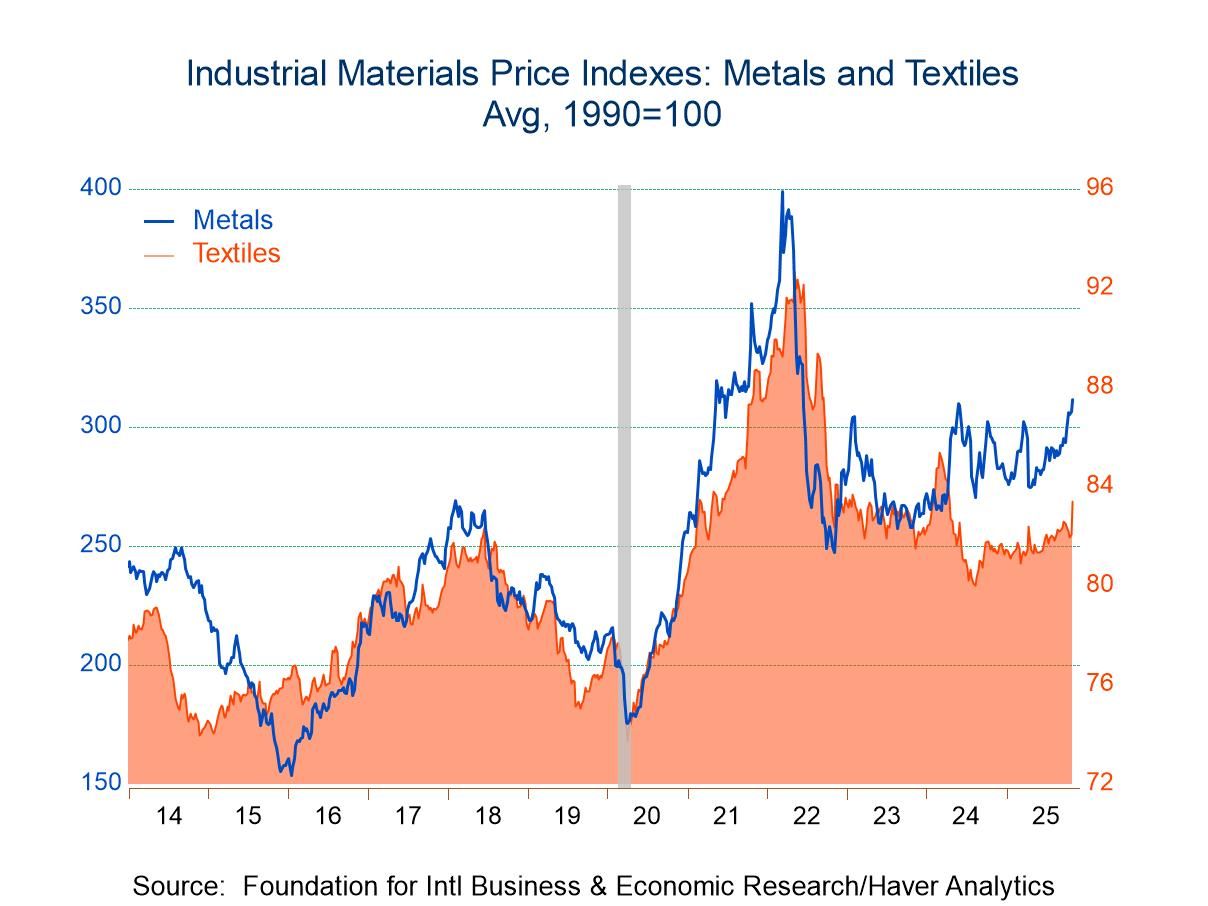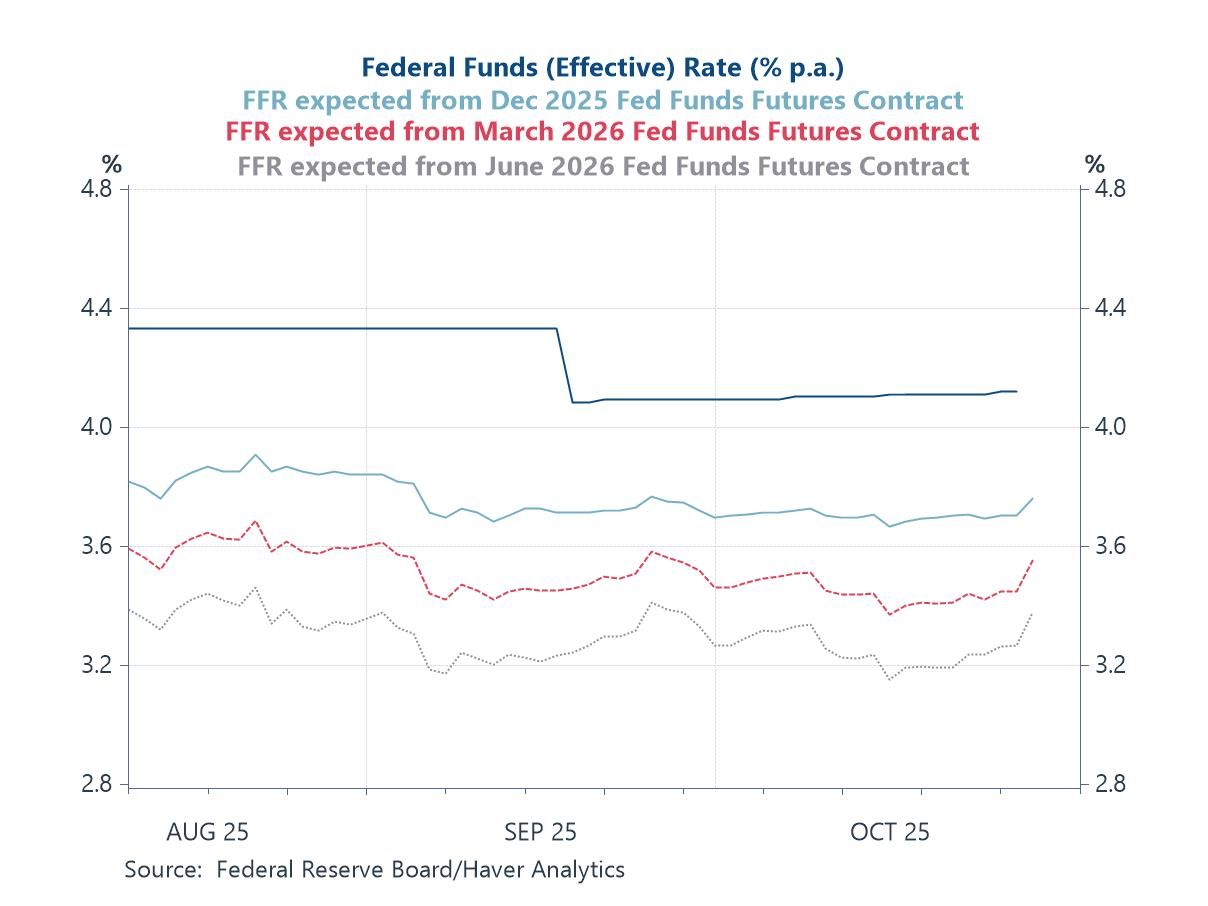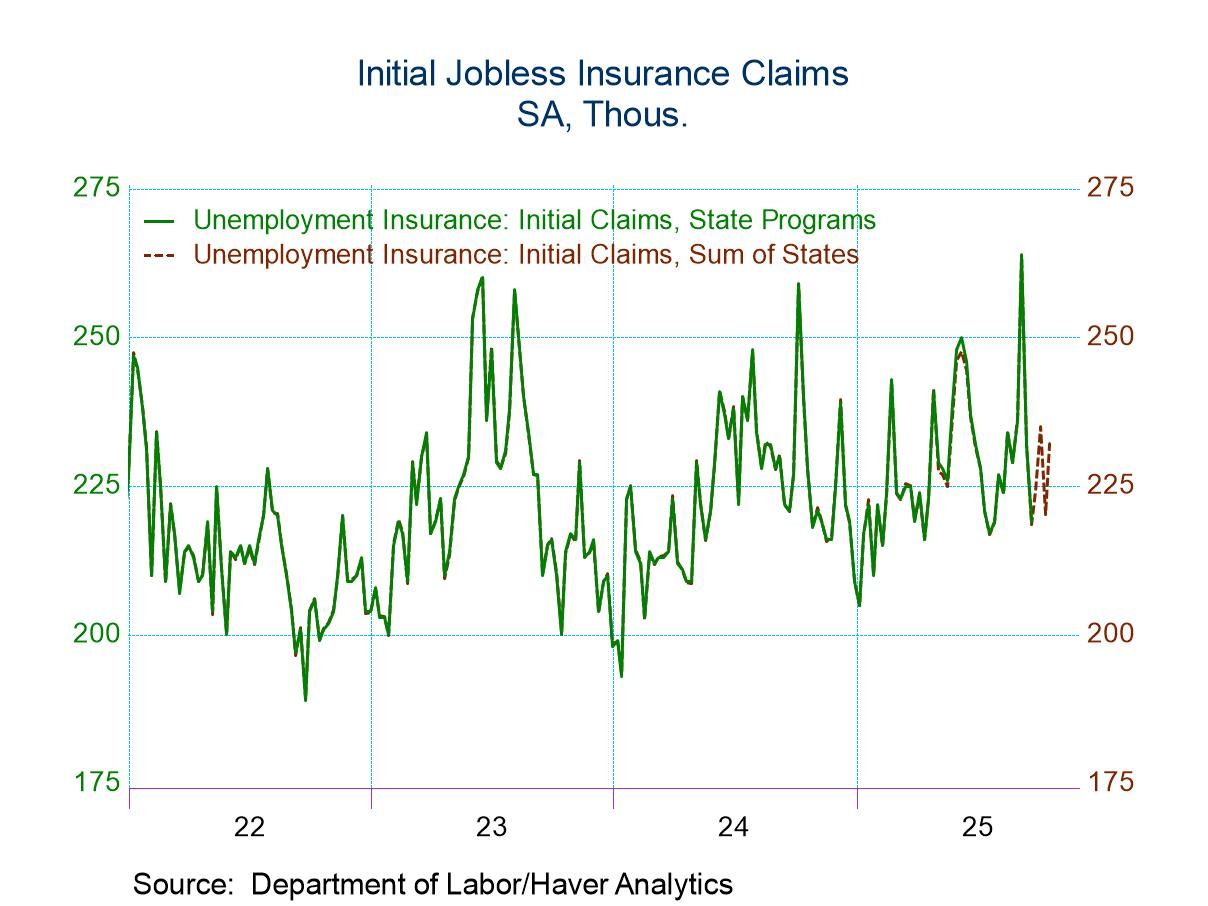 Global| Apr 10 2014
Global| Apr 10 2014U.S. Import Prices Increase As Nonoil Prices Gain Strength
by:Tom Moeller
|in:Economy in Brief
Summary
Import prices increased 0.6% (-0.6% y/y) during March following an unrevised 0.9% February rise. A 0.2% rise had been expected in the Action Economics survey. A 0.6% improvement (0.1% y/y) in nonpetroleum prices led the pricing [...]
Import prices increased 0.6% (-0.6% y/y) during March following an unrevised 0.9% February rise. A 0.2% rise had been expected in the Action Economics survey. A 0.6% improvement (0.1% y/y) in nonpetroleum prices led the pricing strength as it followed a 0.1% February uptick. During the last three months, nonoil import prices rose at a 5.0% annual rate. Petroleum prices ticked up 0.1% (-2.4% y/y) after a 4.7% February surge.
Last month's gain in nonpetroleum prices overall reflected a 2.1% surge (0.5% y/y) in nonpetroleum industrial supplies & materials prices. Foods, feeds and beverage prices also strengthened 3.7% (4.9% y/y). Elsewhere, pricing power remained tepid. Capital goods prices ticked 0.1% higher (-0.6% y/y) after a 0.3% drop. Automotive prices were unchanged (-1.6% y/y) as were nonauto consumer goods prices (0.4% y/y).
U.S. export prices increased 0.8% last month (0.2% y/y) after a little-revised 0.7% February gain. A 0.2% increase had been expected. A 1.7% rise (-6.0% y/y) in agricultural export costs provided power behind the overall price increase. Nonagricultural prices also were strong and improved 0.6% (-0.7% y/y).
Agricultural export prices increased 2.7% (-2.1% y/y) and industrial supplies & materials export prices rose 1.2% (0.9% y/y). These prices excluding petroleum gained a still firm 0.7% (-3.0% y/y). Nonauto consumer goods prices increased 0.3% (-0.9% y/y) following two months of decline. Capital goods export prices gained 0.2% (0.5% y/y), the third straight month of firm increase. Motor vehicles & parts prices were unchanged (0.1% y/y) and have been since October.
The import and export price series can be found in Haver's USECON database. Detailed figures are available in the USINT database. The expectations figure from the Action Economics Forecast Survey is in the AS1REPNA database.
Age Discrimination and the Great Recession from the Federal Reserve Bank of San Francisco is available here.
| Import/Export Prices (NSA, %) | Mar | Feb | Jan | Mar Y/Y | 2013 | 2012 | 2011 |
|---|---|---|---|---|---|---|---|
| Imports - All Commodities | 0.6 | 0.9 | 0.4 | -0.6 | -1.1 | 0.3 | 10.9 |
| Petroleum | 0.1 | 4.7 | 0.3 | -2.4 | -2.6 | -0.3 | 36.5 |
| Nonpetroleum | 0.6 | 0.1 | 0.5 | 0.1 | -0.6 | 0.3 | 4.5 |
| Exports - All Commodities | 0.8 | 0.7 | 0.3 | 0.2 | -0.4 | 0.4 | 8.1 |
| Agricultural | 2.7 | 1.4 | -0.1 | -1.6 | 1.7 | 2.4 | 22.3 |
| Nonagricultural | 0.5 | 0.6 | 0.4 | 0.4 | -0.7 | 0.1 | 6.6 |
Tom Moeller
AuthorMore in Author Profile »Prior to joining Haver Analytics in 2000, Mr. Moeller worked as the Economist at Chancellor Capital Management from 1985 to 1999. There, he developed comprehensive economic forecasts and interpreted economic data for equity and fixed income portfolio managers. Also at Chancellor, Mr. Moeller worked as an equity analyst and was responsible for researching and rating companies in the economically sensitive automobile and housing industries for investment in Chancellor’s equity portfolio. Prior to joining Chancellor, Mr. Moeller was an Economist at Citibank from 1979 to 1984. He also analyzed pricing behavior in the metals industry for the Council on Wage and Price Stability in Washington, D.C. In 1999, Mr. Moeller received the award for most accurate forecast from the Forecasters' Club of New York. From 1990 to 1992 he was President of the New York Association for Business Economists. Mr. Moeller earned an M.B.A. in Finance from Fordham University, where he graduated in 1987. He holds a Bachelor of Arts in Economics from George Washington University.


